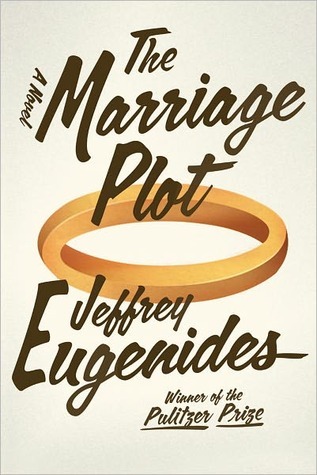What do you think?
Rate this book


406 pages, Hardcover
First published October 1, 2011







1. Too hot sex scenes. Madeleine Hanna is this liberal arts college graduate who is getting her first experiences in sex and when her boyfriend asks her what her sexual fantasy is, she says, ashamed of being seen as a deviant, it is to be pampered. However, later in the story she says the real one and when her boyfriend carries it out, she reaches orgasm bigtime. From then on, she sticks to her boyfriend no matter what other people, including her parents, say.Overall, this book may not be as engaging as his first two earlier novels but I guess, Eugenides is one of the contemporary authors who do not rewrite themselves by coming out with a fresh piece of meat each time they prepare the dinner table.
2. The use of classic literature that has "marriage plot" (women chasing men to get married especially during the Victorian era). While reading you can't help but notice how Madeleine's life revolves between Leonard and her bestfriend Mitchell Grammaticus. It is similar but not exactly the same as that of Isabel Archer in Henry James's The Portrait of a Lady or to Jane Eyre by Charlotte Bronte, or to Helen Graham in Anne Bronte's The Tenant of Wildfell Hall. Not exactly the same because in having this book, Jeffrey Eugenides creates his own kind of heroine and tries to put it side-by-side these women of classic literature.
3. Semiotics. Literature students will be able to enjoy Eugenides' use of semiotics (study of signs including symbols, metaphors, analogies) in communication. Eugenides' prose is easy to read and understand but it is tricky because if you read more carefully, he uses a lot of normal-day metaphors and analogies that can escape your attention. So you have to be careful while reading.